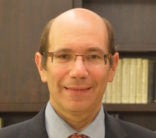Israel’s detractors like to claim that American support for Israel hurts America.
Some point to America’s isolation, standing with only eight other countries against the recent UN General Assembly move to upgrade Palestine’s status. But especially in UN matters, standing for the right principle often entails standing alone. And such lonely idealism often proves redemptive — as it did in 1975, when the U.S. resisted the international pile-on declaring Zionism to be racism.
At the time, many Americans were demoralized by inflation roaring, crime soaring, family breakdown spreading and the specters of Watergate and Vietnam haunting the country. New York City seemed to be leading the decline. America’s ambassador to the UN, Daniel Patrick Moynihan, wandered around the city of his youth, aware that Americans viewed it as one big gritty, grimy, terrifying crime scene slouching toward chaos, rotting from decay, reeking of fear, as New York teetered toward bankruptcy. This was barely two weeks after the infamous Daily News headline claiming President Gerald Ford told the “City” to “Drop Dead.” As a student of the urban scene and an American patriot, Moynihan understood, intellectually and intuitively, that Americans — and New Yorkers — craved leadership.
Moynihan became Ambassador in the summer of 1975, two months after Vietnam fell, understanding it was time to “raise hell” in the UN. The UN had turned from the glorious peace-making institution created from Auschwitz’s ashes into the Third World dictator’s debating society, bashing America and trashing liberal democratic values. Moynihan viewed the vote on Nov. 10, 1975 for Resolution 3379 declaring Zionism to be racism, as a vote against democracy and decency. Moynihan told the General Assembly that the United States would “not acknowledge, will never abide by, and will never acquiesce in this infamous act.”
The Conference of Presidents of Major American Jewish Organizations called a rally for Nov. 11. But worried about the attendance, the organizers called it a “youth rally,” which requires a lower turnout to be deemed successful.
That day, Americans united in New York against this scourge. Tens of thousands from throughout the metropolitan area streamed toward Midtown, jamming Seventh Avenue from 39th to 41st streets, spilling over into the side streets. Many of these people were the success stories of the great Eastern European Jewish immigration, coming from the Bronx’s gritty old neighborhoods, Queens’s awkward, aspiring middle-class neighborhoods, and Long Island’s fancy suburbs, united in fear of the world and gratitude toward their American haven.
B’nai B’rith’s president, David Blumberg, roused the crowd by exclaiming: “Zionism is beautiful,” echoing the 1970s’ “Black is beautiful” racial self-esteem movement. Many shouted back—appropriately — “Right On!” Many New Yorkers, Jews and non-Jews, blacks and whites, from left to right, began sporting white on blue buttons proclaiming: “I AM A ZIONIST.”
That week in America, Jews felt the love of their fellow citizens, from the man on the street to President Ford. The fury against the UN revealed an abiding consensus about core American values during an era of seeming chaos. As my new book, “Moynihan’s Moment,” argues, Daniel Patrick Moynihan’s politics of patriotic indignation inspired the nation — and revived Moynihan’s political career. Cab drivers on Park Avenue honked their horns at him, shouting “Attaboy, Pat.” When Moynihan arrived for a concert at Carnegie Hall, the audience stood and cheered.
“It was the beginning of a national reassertion,” the columnist George Will recalls. Fans responded to the emotion in Moynihan’s voice as much as the words on his lips. He essentially said what Peter Finch, palying the fictional anchorman in the Academy Award-winning movie “Network,” would say a year later: “I’m as mad as hell and I’m not going to take this anymore.”
“Did I make a crisis out of this obscene resolution?” Moynihan would bellow, responding to criticism that he picked a fight. “Damn right I did!”
Moynihan’s Moment reminds us of the deep friendship between America and Israel, and between non-Jews and Jews in America. It shows that the American Jewish community mobilized effectively and, for the first time in history, the leading world power of the time denounced anti-Semitism unequivocally. And it teaches an essential lesson today, that even when attacked with hate, we should affirm our values with love, proclaiming: “I AM A ZIONIST” — redefining the movement for today. That kind of affirmative courage helped save New York and redeem America, as it paved the way for the prosperity of the Ed Koch boom in New York, and Ronald Reagan’s patriotic “Morning in America” revival.
Support the New York Jewish Week
Our nonprofit newsroom depends on readers like you. Make a donation now to support independent Jewish journalism in New York.
Gil Troy is professor of history at McGill University and a Shalom Hartman Engaging Israel Research Fellow. His latest book, “Moynihan’s Moment: America’s Fight Against Zionism as Racism” (Oxford University Press), was just published.
The New York Jewish Week brings you the stories behind the headlines, keeping you connected to Jewish life in New York. Help sustain the reporting you trust by donating today.





